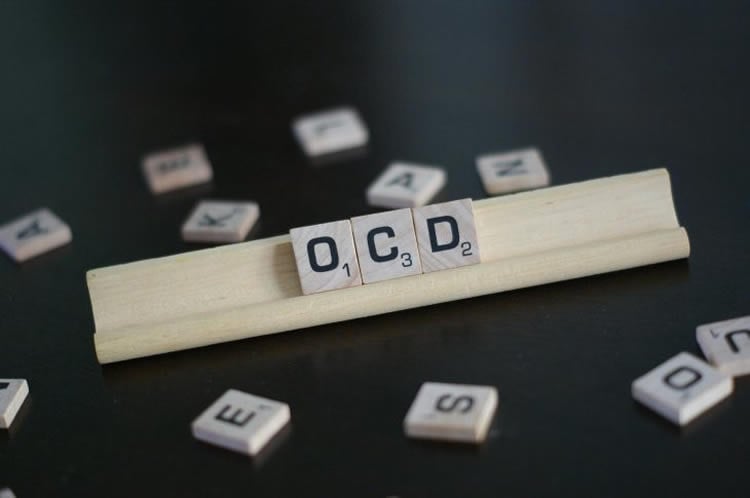Summary: Researchers report the actions of those with OCD don’t take into account things they have learned.
Source: Cell Press.
The repeated behaviors that characterize obsessive-compulsive disorder are a manifestation of an underlying brain dysfunction that is not yet well understood. Now, in a study appearing on September 28 in the journal Neuron, scientists in the UK report the use of a mathematical model that they say will help them get at the root of what causes OCD. They find that people with OCD develop an internal, accurate sense of how things work but do not use it to guide behavior.
“This study shows that the actions of people with OCD often don’t take into account what they’ve already learned,” says senior author Benedetto De Martino , principal investigator of the Brain Decision Modelling Laboratory at University College London. The study was led by graduate students Matilde Vaghi and Fabrice Luyckx.
The researchers were able to measure the degree to which beliefs and action were dissociated from one another, and they found that the degree of uncoupling could predict the severity of OCD symptoms. “This was very surprising to me,” De Martino adds. “It’s the first time anyone has been able to calculate the degree of dissociation and show that it correlates with the severity of the disease.”
De Martino’s lab is focused on developing a mechanistic understanding of the connection between confidence and action. Specifically, his group looks at how certainty guides the decisions that we make. For example, if you are certain that it will rain, you will take an umbrella with you. “But we suspect that in people with OCD, this link is broken,” he explains. “Someone with OCD will tell you that they know their hands are clean, but nevertheless they can’t stop washing them. Two things that are normally linked together–confidence and action — have become uncoupled.”
To study the connection, the investigators developed a test to measure this phenomenon. Forty-nine volunteers (24 with OCD and 25 matched controls) were recruited to play a video game in which they had to catch coin-like objects in a bucket. After several trials, both sets of participants were able to state with confidence where they thought the coins were coming from. Yet while the healthy participants were able to set their buckets based on that belief, those with OCD continued to second guess themselves, disregarding the confidence they felt and chasing every coin by constantly moving their buckets around.

This type of study belongs to a relatively new field of research called computational psychiatry, which is focused on developing mathematical models to understand the defects in the brain that lead to detrimental behaviors. “Medicine today is very much about decoding the mechanisms in the body,” De Martino says. “When we are talking about something like a heart valve, that’s a mechanical part that can be clearly understood. But the brain is a computational device that has no mechanical parts, so we need to develop mathematical tools to understand what happens when something goes wrong with a brain computation and generates a disease.”
“This model not only gives us greater insight into OCD, but also into the normal, healthy brain as well,” says De Martino. “Just as studying people with lesions in the hippocampus has historically taught us about the inner workings of memory, studying people with OCD can give us new insights into how beliefs and actions are linked.”
He adds that once such tools are developed, they are likely to be useful in developing new approaches for diagnosis, which could lead to early detection and early intervention. “This would be a game-changer in the field,” he concludes.
Funding: This research was supported by the Wellcome Trust, a Pinsent Darwin Scholarship in Mental Pathology, and the Angharad Dodds John Bursary in Mental Health and Neuropsychiatry.
Source: Joseph Caputo – Cell Press
Image Source: NeuroscienceNews.com image is credited to airpix and is licensed CC BY 2.0.
Original Research: Full open access research for “Compulsivity Reveals a Novel Dissociation between Action and Confidence” by Matilde M. Vaghi, Fabrice Luyckx, Akeem Sule, Naomi A. Fineberg, Trevor W. Robbins, and Benedetto De Martino in Neuron. Published online September 28 2017 doi:10.1016/j.neuron.2017.09.006
[cbtabs][cbtab title=”MLA”]Cell Press “Actions Are At Odds With Beliefs For People With OCD.” NeuroscienceNews. NeuroscienceNews, 28 September 2017.
<https://neurosciencenews.com/ocd-action-belief-7612/>.[/cbtab][cbtab title=”APA”]Cell Press (2017, September 28). Actions Are At Odds With Beliefs For People With OCD. NeuroscienceNews. Retrieved September 28, 2017 from https://neurosciencenews.com/ocd-action-belief-7612/[/cbtab][cbtab title=”Chicago”]Cell Press “Actions Are At Odds With Beliefs For People With OCD.” https://neurosciencenews.com/ocd-action-belief-7612/ (accessed September 28, 2017).[/cbtab][/cbtabs]
Abstract
Compulsivity Reveals a Novel Dissociation between Action and Confidence
Highlights
•Action can be functionally dissociated from confidence
•Patients with obsessive-compulsive disorder (OCD) show exaggerated action updating
•Confidence in OCD is intact and reflects information that is not used to control action
•Degree of action-confidence dissociation correlates with symptom severity in OCD
Summary
Confidence and actions are normally tightly interwoven—if I am sure that it is going to rain, I will take an umbrella—therefore, it is difficult to understand their interplay. Stimulated by the ego-dystonic nature of obsessive-compulsive disorder (OCD), where compulsive actions are recognized as disproportionate, we hypothesized that action and confidence might be independently updated during learning. Participants completed a predictive-inference task designed to identify how action and confidence evolve in response to surprising changes in the environment. While OCD patients (like controls) correctly updated their confidence according to changes in the environment, their actions (unlike those of controls) mostly disregarded this knowledge. Therefore, OCD patients develop an accurate, internal model of the environment but fail to use it to guide behavior. Results demonstrated a novel dissociation between confidence and action, suggesting a cognitive architecture whereby confidence estimates can accurately track the statistic of the environment independently from performance.
“Compulsivity Reveals a Novel Dissociation between Action and Confidence” by Matilde M. Vaghi, Fabrice Luyckx, Akeem Sule, Naomi A. Fineberg, Trevor W. Robbins, and Benedetto De Martino in Neuron. Published online September 28 2017 doi:10.1016/j.neuron.2017.09.006






